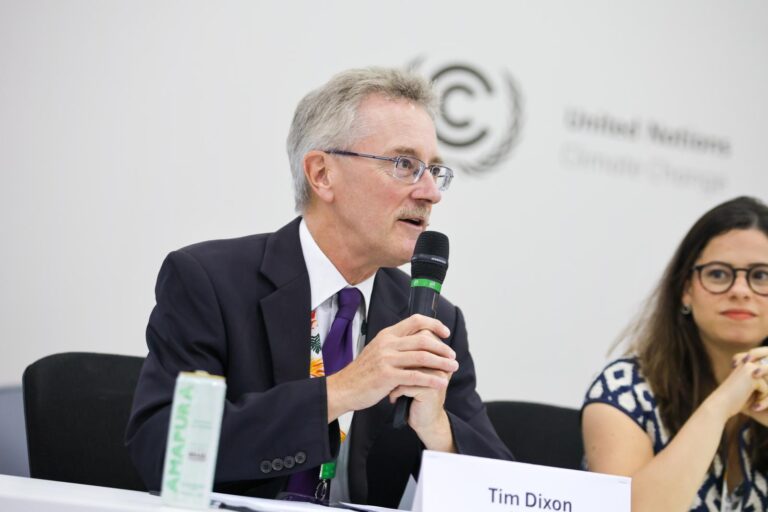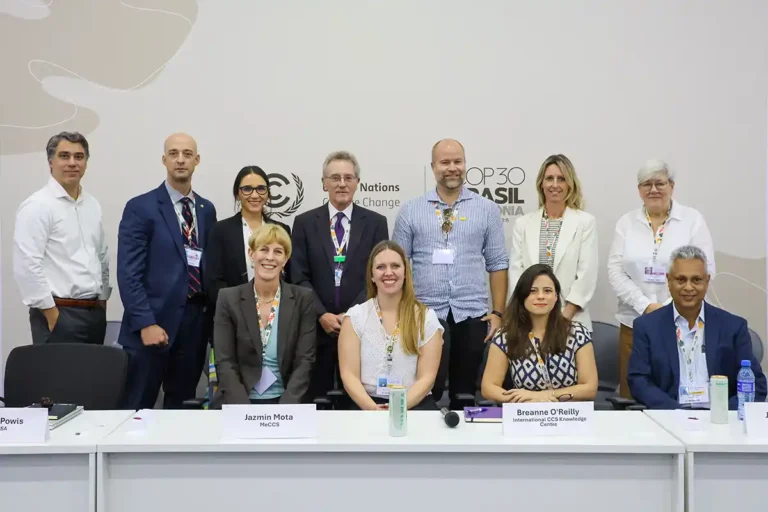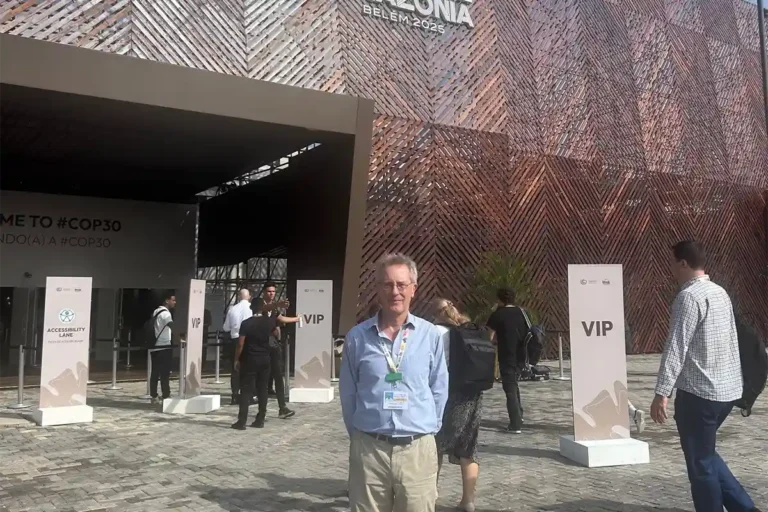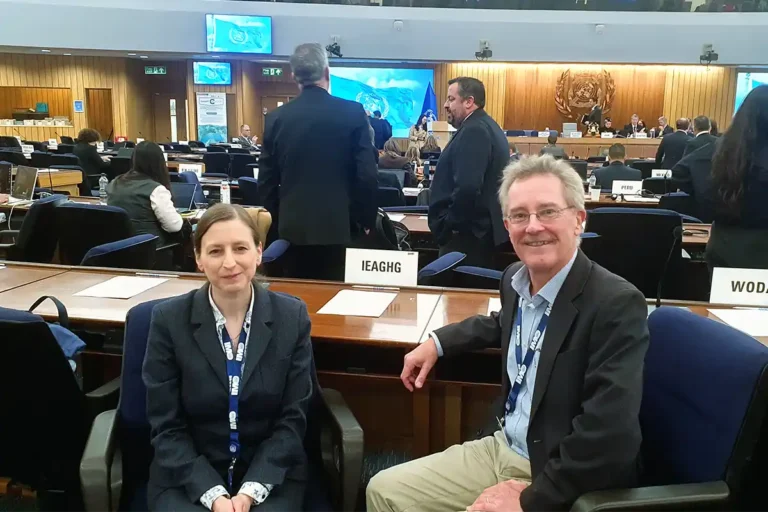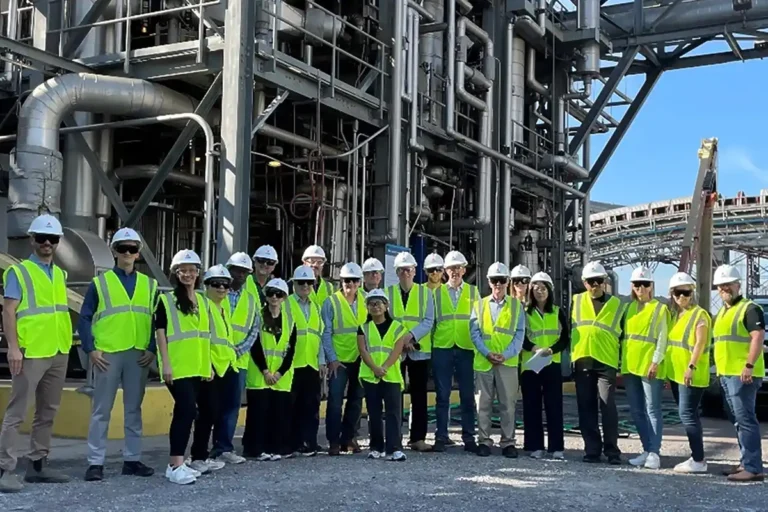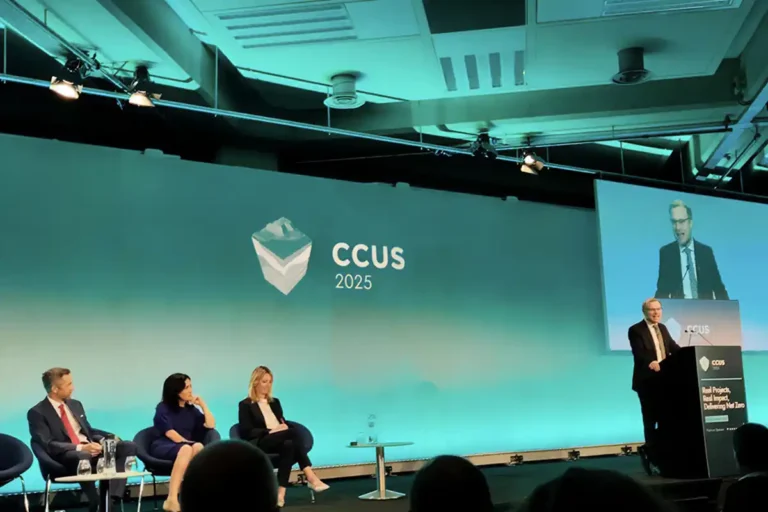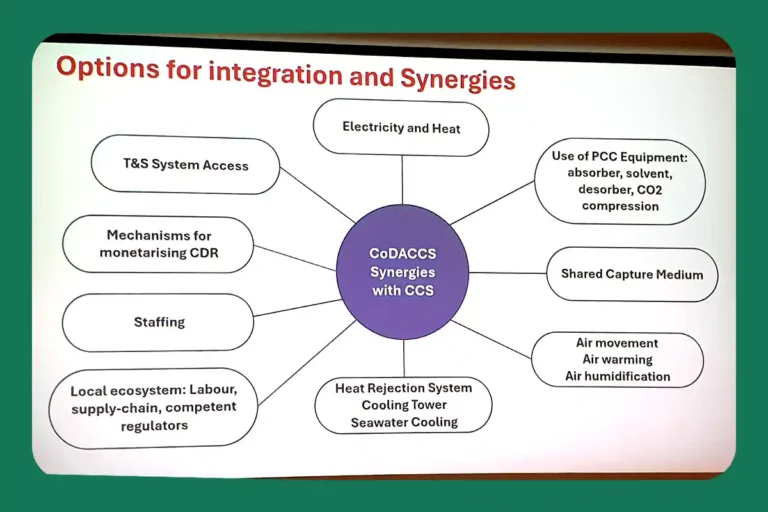
COP-23 Side-event on CCS and Oceans and Small Island States
8 November 2017
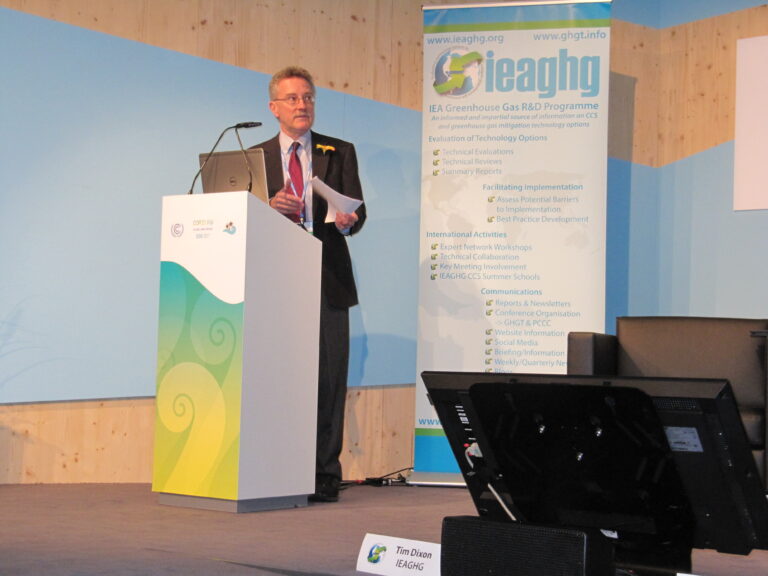
Yesterday was our Side-event, co-organised with The University of Texas, Bellona and CCSA. It was well attended, with around 150 attendees, and lots of good questions.
The side event started with Dr Carol Turley OBE presenting an update on ocean acidification and its significant impacts on the planet; even the NDCs pledged so far will still cause a very high risk to marine ecosystems such as warm water coral reefs, and hence why we need to stop putting CO2 in the atmosphere and to start removing it. Of course, CCS technologies help do this CO2 reduction, and I explained how the London Convention responded in 2006 to the very real impacts of ocean acidification by amending itself to allow CO2 geological storage offshore, with appropriate regulatory guidance to protect the marine environment.
Dr David Alexander of the University of Trinidad and Tobago presented on the climate impacts already happening there and the considerable potential for CCS they have from their ammonia and LNG production. The best CO2 storage potential exists in depleting oil and gas fields and saline formations offshore. Dr Alexander is an IEAGHG Summer School alumni from 2009.
Dr Katherine Romanak presented on the learnings from US DOE projects in developing monitoring for CO2 storage, now taking it from onshore to offshore. “We know CCS works, and we know how to show it works”.
Mike Monea presented an update from Boundary Dam project knowledge sharing. Vice-Mayor Geir Lippestad presented Olso’s plans to reduce GHG emissions from waste using CO2 capture. Keith Whirisky of Bellona presented on the need for infrastructure development to join up industrial sources to storage. Finally, thinking about encouraging renewables, Clara Heuberger of Imperial College presented from a system perspective on CCS supports renewables, an area needing more recognition.
Questions ranged from the more technical aspects of flexible CCS in energy systems and Trinidad and Tobago’s CCS potential, to basic principles around waste reduction options.
Overall, the session showed why the oceans need CCS, and how it can be done in the perspective of small island states who need to move beyond their first NDCs to decarbonise their industrial sources. This will be increasingly important as NDCs are updated and as countries submit their long-term GHG mitigation strategies.
Many thanks to all who participated, especially the audience.
IISD coverage is provided at http://enb.iisd.org/climate/cop23/enbots/7nov.html#event-1 and the presentations will be available at https://seors.unfccc.int/seors/reports/events_list.html?session_id=COP23
Image above: Tim Dixon Speaking at the Side-Event. Photo courtesy of Ton Wildenborg

Other articles you might be interested in
Get the latest CCS news and insights
Get essential news and updates from the CCS sector and the IEAGHG by email.
Can’t find what you are looking for?
Whatever you would like to know, our dedicated team of experts is here to help you. Just drop us an email and we will get back to you as soon as we can.
Contact Us NowOther articles you might be interested in
Get the latest CCS news and insights
Get essential news and updates from the CCS sector and the IEAGHG by email.
Can't find what you are looking for?
Whatever you would like to know, our dedicated team of experts is here to help you. Just drop us an email and we will get back to you as soon as we can.
Contact Us Now


